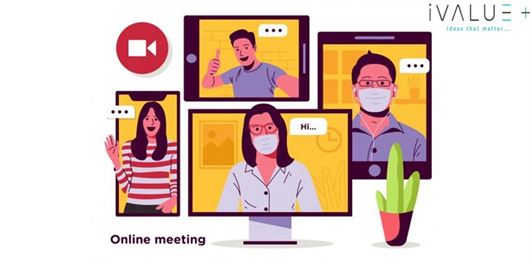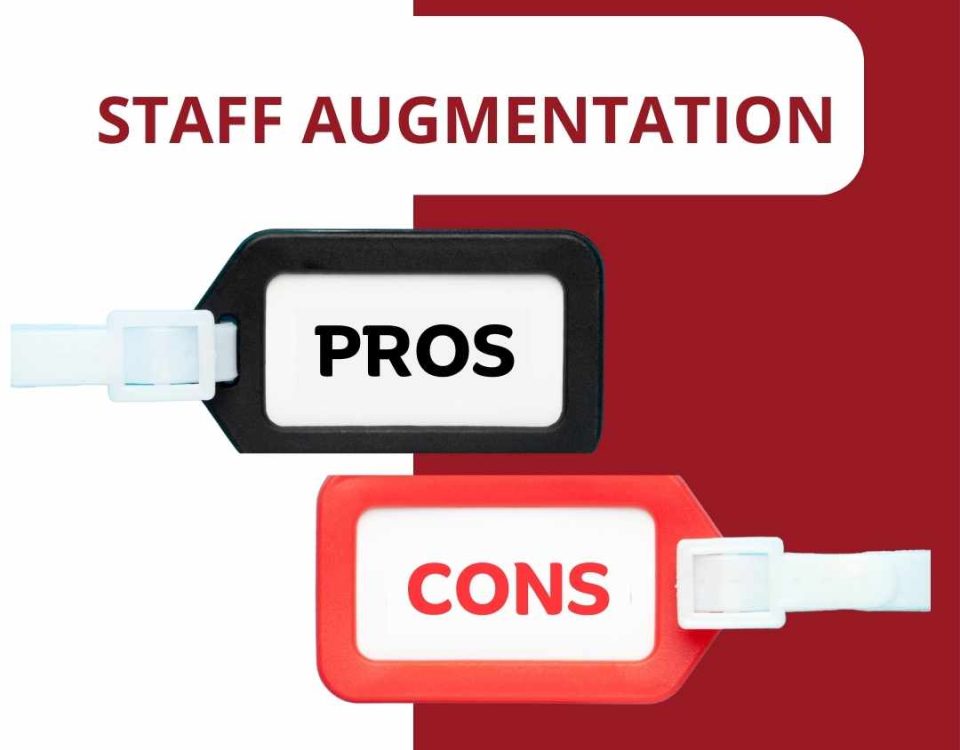
Staffing Challenges for Ambitious Software Product Companies
March 1, 2021
Technology Trend 2021
March 8, 2021Office Work Will Never Be the Same: Adapting to a Post-Pandemic World
The Covid-19 pandemic has forced changes on everyone, and nowhere has that impact been greater than in the world of work. The enforced lockdown around the world meant companies had to adapt to remote working pretty much instantly, pushing them to implement solutions that should have taken years into just a few weeks.
“The pandemic has been like an enforced experiment on remote working for pretty much every company in the world. “At a stroke, many of the cultural hurdles removed about having people in the same place so that managers can see them every day of the week.”
A recent study found that the Covid-19 pandemic had accelerated digital transformation at 59% in the organisations it surveyed, with 66% saying they have been able to complete initiatives that previously encountered resistance.
The pandemic has changed managers’ view of what is acceptable and what is possible. “People used to say things like ‘you have to be in the room to close the deal’, ‘this training can only happen face to face’, ‘you have to be up close to people to know what they are thinking’.
As coronavirus cases receded over the summer, many companies started to plan for a managed return to the office for many workers, but the increase in cases in many markets has put that on hold. What is clear, though, is that when we do go back, the offices that we return to will not look the same as before, and will not be used in the same way.
Even before Covid-19, there was a shift towards a more agile model of working, based on how and where people work. The workforce of the future will be much more dispersed than pre-Covid, working to a distributed, hybrid model. Some people will never want to return to the office and will want to work only from home, while others will be desperate to get back as soon as they can. Others will want to go back to an office but not necessarily the one they used to work in, so there is likely to be an increase in the use of shared workspaces of the type run by Regus and WeWork.
As this shift continues, technology plays an increasingly important role now that more knowledge workers have familiarized themselves with its benefits. That means video apps like Zoom and chat software like Slack should carry over into their regular day-to-day life after the pandemic. The way people meet — the medium as well as the length and purpose of meetings — could also evolve. On a very human note, the experience of living through a crisis together and the memory of seeing colleagues’ living rooms, as well as their kids and pets, could lead to a greater sense of empathy and even a permanent softening of workplace decorum.
All of this might inevitably add up to more jobs offering a better work-life balance and a more flexible office life. The ability to step out in the middle of the day to run errands or attend a child’s recital could be extended to more office workers and could be a stipulation of a knowledge-work job in the first place. And if that’s the case, this might just reverse the years-long trend of these jobs requiring moves to big, expensive cities.
For some, the promise of being able to work from anywhere — something touted almost as long as the internet has existed — could finally come to pass. If nothing else, the lessons learned from the pandemic will reshape the future of office work everywhere.
More reliance on tech even after we can go back to the office
The coronavirus pandemic has brought a new sense of purpose to workplace software like video conferencing and chat applications, including Zoom, Slack, Microsoft Teams, Google Meet, and many others. This software helps employees collaborate on work previously done in person, and it became a business necessity during the lockdown when much of the world couldn’t go into the office. And thanks to that rapid adoption, as people return to the office, they’ll likely continue using this software and even use it in new ways.
“Conferencing and collaboration apps accelerated by a magnitude of two years; Collaboration software moved from a ‘nice to have’ to a ‘must have.” “It’s easy to forget that not everyone is tech-savvy,”
During the period of mandatory work from home, many have had to learn how to use these new apps, not to mention how to navigate a workday full of video meetings, digital chats, and more after-hours correspondence. Just as earlier adopters once did, the tens of millions of newcomers to this tech are bound to adapt to new workflows. In other words, now that everyone’s been forced to learn how to use them, these apps probably won’t go away when offices open back up.
And why should they? Productivity tools like Slack and Microsoft Teams can provide a more efficient way to communicate. They centralize communication and make it easier for everyone at a company to access assets, like documents and spreadsheets. The software also provides a trail so that people can look up discussions that have already happened.
There are some downsides. Depending on who you are and how you use the software, it can also be its own drag on your productivity. The dramatic increase in usage of these services has also revealed more than a few privacy and security concerns, some of which have already been addressed.
Regardless, the longer people rely on this sort of software, the more permanent it will become. But it will still take some time for both employees and their bosses to adjust to new ways of working. As “This is not a switch, this is a dial.”
The transition to remote work has also piqued some companies’ interest in surveillance tech for employees. Worried that not having people in the office could lead to the leaking of sensitive information or just more goofing off, employers are using software like Aware for compliance, as well as ActivTrak, Time Doctor, or Teramind for productivity monitoring.
It’s also more common from organizations that aren’t as familiar with working from home.
“A lot is a fear of loss of control,”. It’s a big adjustment for people with old-school corporate values.
More meetings and longer days
After knowledge workers left the office during the pandemic and increasingly relied on technology, the layout of the workday changed — and not always for the better. For some, one unexpected and seemingly negative effect of this has been more meetings.
In total, online meetings nearly doubled from February to April, while offline meetings obviously plummeted. Time is Ltd. also found that meetings got bigger by 18 percent between February and April, which means more people were invited to each event. Mercifully, the average length of meetings went down by about 10 minutes each. While these statistics come from a subset of companies in one region of the world, there’s evidence that the culture of meetings is undergoing changes elsewhere.
Looking at a 300-person team at Microsoft, Spataro has seen weekly meeting time jump 10 percent since working from home due to the coronavirus, which adds up to about three additional meetings per week per employee. The Microsoft team also saw an 18 percent jump in one-on-one meetings and a 10 percent growth in social meetings like virtual lunches and happy hours.
It’s hard to know if this is a good thing. Meetings are known to sap productivity, but with the coronavirus, the situation is a little more complicated. More people working from home has meant that once-spontaneous interactions — talking to a colleague while grabbing coffee or lunch, for instance — must be relegated to more formalized settings.
The coronavirus could make us better at collaborating and living farther apart
Even with the stressors, there are positive ways these tech-focused workdays are affecting teamwork. You can’t see your colleague wearing a stained hoodie in their bedroom while getting Zoombombed by their 8-year-old without feeling a bit closer to them. Similarly, commiserating with your colleagues about the whims of your bosses amid a global crisis can be a singular bonding experience. All of it makes us better at working together.
We have something in common with everyone on the planet we didn’t have two months ago. It gives us something we share. It humanizes us. “The sense of community is now to the point where the tech is ready to support authentic community.” These deeper relationships, in conjunction with more flexible work processes, enable something called “agile work”. What we’re seeing right now is a transition to a different type to work and different way of organizing work. “There is a better understanding of the goals that the group has to deliver, a better understated of what the individual contributes.”
Part of what’s enabling this shift is a sense of freedom enabled by remote work, something people have been anticipating since the early days of the internet. A massive push into remote work could truly make it possible to work from anywhere and on your own schedule. It was already starting to happen pre-pandemic, but the coronavirus could provide the push necessary to make it a more widely adopted reality. There’s a shift to focus more on results and outcomes versus time spent at a desk and standard business hours. “The tide finally turned the way it was already headed.”
There’s also the enormity of what’s going on, which we all have to talk out: a deadly pandemic changing nearly every aspect of the way we live and work. Then there’s the economic fallout from the pandemic, which is causing companies to cut costs, lay off workers, and change the way business is done. And many companies have forced all of their workers to work from home for the first time, so there are a lot of kinks to work out. Trying to talk to each other more seems like a natural outcome.
References:
https://www.vox.com/recode/2020/5/21/21234242/coronavirus-covid-19-remote-work-from-home-office-reopening
https://www.reutersevents.com/sustainability/why-way-we-work-will-never-be-same-again-after-covid
https://www.rediff.com/business/special/how-working-in-office-will-never-be-the-same-again/20201205.htm
https://www.wsj.com/articles/post-pandemic-office-life-may-never-be-the-same-cios-say-11609245000
https://www.zdnet.com/article/your-working-day-will-never-be-the-same-again-heres-what-might-replace-it/







